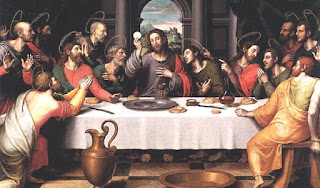XV SUNDAY IN ORDINARY TIME - Matthew 13:1-23
The parable of the sower, read in this Sunday’s Gospel, is not so much about the sower or even the seed, but about the soil which receives the seed. There are different types of soil, which explains the difference in the results when the harvest time comes.
Confronted with many people who rejected his word, Jesus put forward this parable, challenging them and stressing the importance of hearing with an open heart. He applied to the people this passage of Isaiah:
“For the heart of this nation has grown coarse,
their ears are dull of hearing, and they have shut their eyes” (Is 6:10)
To hear and to see are essential for us to live in and relate to the world. In order to establish relationships, listening is essential, that is, hearing with the heart, which leads to understanding and acceptance. When I listen, I affirm the other and the other realises that he/ she is there for me. By listening, I drop my defences, become vulnerable and allow myself to be touched by the other. This makes the dialogue possible and strengthens the relationship. Listening is of paramount importance in all relationships: in marriage, in the family and in groups. Whenever I refuse to listen, I reject the other and the relationship will break down sooner or later. The parable tells us that the same happens when we hear the word of God. The different types of soil represent our different attitudes towards the Word or the different things that may distract us and stop us from listening and being challenged by the Word.
Each one of us should examine himself and find out how he hears when others talk to him? How do I listen? How do I listen to my spouse, to my children, to my parents, to my friends? And how do I listen to God? Is he allowed to speak? Nowadays, there is so much noise that we become deaf - deaf even to ourselves. In order to listen, we need silence, not only of noise but also of the worries that not allow us to stop, to sit and to reflect.
The parable presents the following types of soil:
- the edge of the path: - someone hears but does not understand; he is not touched by the word since it sounds like nonsense to him.
- patches of rock: - someone who enjoyed the word but had no time for it; he does not allow himself to be challenged by the word. Trials and suffering kill the hope that germinated in his heart.
- among thorns: - “the worries of this world and the lure of riches choke the word and so he produces nothing.” (Mt 13:22)
- rich soil: - “the one who hears the word and understands it. He indeed bears fruit and yields, in one case a hundredfold, in another sixty, and in another thirty.” (Mt 13:23)
What kind of soil do I have in my heart? Do I listen? Do I allow the word to challenge me?
Christ is the Word, and we must listen to him (Mt 17:5).




